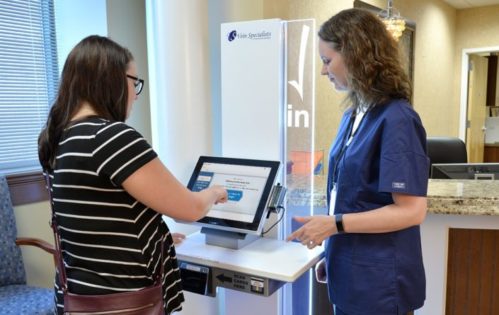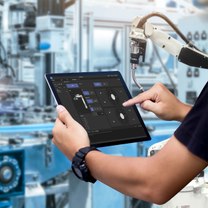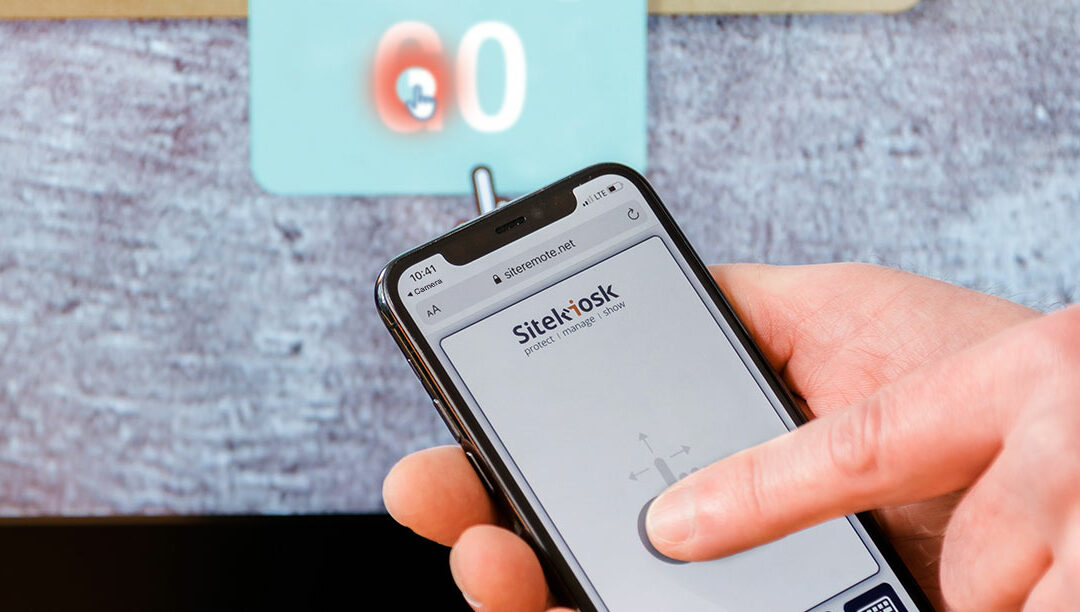In today’s technologically advanced world, businesses are constantly exploring ways to improve customer experiences and streamline processes. Integrating kiosks with mobile devices and apps has emerged as a powerful solution that offers numerous benefits. In this article, we will delve into the advantages of combining kiosks with mobile technology and how this integration enhances user experiences, personalization, efficiency, and more.
Introduction
As technology continues to evolve, so do the capabilities of kiosks and mobile devices. Kiosks are self-service interactive terminals that allow users to perform various tasks, such as making purchases, accessing information, or completing transactions. On the other hand, mobile devices, such as smartphones and tablets, have become an integral part of our daily lives, providing convenience, connectivity, and personalized experiences. The integration of kiosks with mobile devices and apps presents a powerful opportunity to create seamless and enhanced user experiences.
Streamlined User Experience
Integrating kiosks with mobile devices creates a streamlined user experience by enabling seamless interaction between the two. Users can leverage the familiarity and convenience of their mobile devices to interact with kiosks without the need for additional hardware or manual input. Whether it’s scanning QR codes, utilizing NFC (Near Field Communication) for contactless interactions, or simply using their mobile devices as digital wallets, the integration enhances user convenience and eliminates friction in the interaction process. Secure kiosks offer a robust solution for businesses seeking to elevate user experiences. With secure kiosk software, companies can confidently deploy interactive touchpoints, allowing customers to access information, place orders, and make payments seamlessly. These self-service hubs empower users, reducing the burden on staff and optimizing operations.

Enhanced Personalization and Customization
The integration of kiosks with mobile apps allows businesses to capture valuable user preferences and profiles, enabling personalized experiences. By leveraging mobile apps, businesses can gather data on user behavior, demographics, and preferences. This information can then be used to tailor content, recommendations, and promotions to individual users. Whether it’s displaying personalized product recommendations, customizing interface settings, or providing targeted offers, the integration creates a more engaging and tailored experience for users. Imagine a world where users can interact with brands in an entirely new way. Interactive kiosks create immersive experiences that leave a lasting impact on customers. By incorporating interactive display software, businesses can captivate their audience with interactive content, dynamic visuals, and engaging calls-to-action.
Increased Efficiency and Speed
The integration of kiosks with mobile devices significantly enhances efficiency and speed in various contexts. Users can leverage their mobile devices to expedite transactions, eliminating the need for physical payment methods or manual input. Mobile devices can also serve as digital identification, enabling quick access to services or facilities. Additionally, the integration reduces wait times by providing faster information retrieval and seamless data synchronization between the kiosk and the user’s mobile device.
Expanded Functionality and Flexibility
By integrating kiosks with mobile devices and apps, businesses can extend the functionality and flexibility of their self-service solutions. Mobile apps can serve as a gateway to additional features and services, enabling users to access a wider range of options beyond what the kiosk itself offers. This integration also opens up opportunities for businesses to integrate with third-party apps and services, further enhancing the overall experience. From booking services to integrating with social media platforms, the possibilities for expanded functionality are extensive.
Improved Data Collection and Analytics
Integrating kiosks with mobile devices and apps provides businesses with valuable data collection capabilities and actionable insights. By gathering data on user behavior, interaction patterns, and preferences, businesses can gain a deeper understanding of their customers. This data can be analyzed to uncover trends, identify opportunities, and inform strategic decision-making. By understanding user preferences, businesses can better tailor their offerings, promotions, and marketing efforts to meet customer needs.

Cost Savings and Scalability
Integrating kiosks with mobile devices and apps can result in cost savings and improved scalability for businesses. By leveraging mobile devices as the primary interface for interaction, businesses can reduce hardware costs associated with traditional kiosks. Updates and enhancements can also be easily implemented through mobile apps, reducing maintenance and upgrade expenses. Additionally, the scalability of mobile apps allows businesses to cater to a larger user base without significant infrastructure investments.
Accessibility and Inclusivity
The integration of kiosks with mobile devices promotes accessibility and inclusivity in user experiences. Mobile devices offer various accessibility features, such as screen readers, text-to-speech capabilities, or adjustable font sizes, which can benefit users with disabilities. Furthermore, multilingual support and translation capabilities on mobile apps ensure that language barriers are overcome, creating a more inclusive experience for users from diverse backgrounds. For businesses committed to inclusivity, interactive digital signage holds the key. By employing touchscreen software, organizations can ensure that their interactive displays are user-friendly for all, regardless of age or ability. This empowers every individual to engage with the content effortlessly, fostering a sense of belonging and trust.

Enhanced Marketing and Promotions
Integrating kiosks with mobile devices and apps opens up new avenues for marketing and promotions. By leveraging mobile apps, businesses can deliver push notifications and targeted marketing messages directly to users’ devices. This enables businesses to engage with users even when they are not physically present near the kiosk. Integration with loyalty programs and rewards can also be seamlessly facilitated through mobile apps, allowing businesses to incentivize and reward users for their interactions and transactions. Gone are the days of static billboards and printed posters. Digital signage has redefined communication in public spaces. When linked with mobile apps, digital signage software becomes a versatile tool for disseminating real-time information, advertising, and broadcasting captivating messages, seamlessly adapting to customer preferences and needs.
Improved Data Security and Privacy
Data security and privacy are crucial considerations when integrating kiosks with mobile devices. With the rise of data breaches and privacy concerns, businesses must prioritize secure authentication and encryption protocols to protect sensitive user information. By leveraging the security features of mobile devices, such as biometric authentication or secure tokenization, businesses can ensure that user data remains secure throughout the interaction process. Compliance with privacy regulations, such as GDPR (General Data Protection Regulation), is also essential to maintain user trust and confidence.
Real-Time Updates and Notifications
Integrating kiosks with mobile devices enables businesses to provide real-time updates and notifications to users. Whether it’s informing users about new products, promotions, or changes in services, mobile apps can deliver time-sensitive information directly to users’ devices. This ensures that users are always informed and up to date, creating a more engaging and interactive experience.
Integration in Various Industries
The integration of kiosks with mobile devices and apps holds tremendous potential across various industries. From retail and hospitality to healthcare and transportation, businesses in diverse sectors can benefit from this integration. In retail, for example, integrating kiosks with mobile devices allows customers to scan products, access detailed information, and make purchases seamlessly. In healthcare, patients can check-in, access medical records, and receive appointment reminders through mobile-integrated kiosks. The possibilities for industry-specific applications are vast, with each sector being able to leverage the benefits of this integration to enhance customer experiences.
Future Trends and Possibilities
As technology continues to advance, the integration of kiosks with mobile devices and apps is likely to witness further advancements and innovations. Emerging technologies, such as augmented reality (AR) or near-field communication (NFC), hold immense potential for creating even more immersive and interactive user experiences. Furthermore, as businesses continue to leverage data analytics and AI-driven technologies, the personalization and customization capabilities of this integration are expected to become even more refined and impactful.
Conclusion
Integrating kiosks with mobile devices and apps presents numerous benefits for businesses and users alike. From streamlined user experiences to enhanced personalization, increased efficiency, and expanded functionality, this integration has the potential to revolutionize how businesses interact with their customers. By leveraging the power of mobile technology, businesses can create seamless, convenient, and personalized experiences that drive customer satisfaction, loyalty, and ultimately, business growth. As technology continues to advance, the integration of kiosks with mobile devices will undoubtedly play a significant role in shaping the future of customer interactions.
Open a free 30-day trial account today!
It only takes a couple of minutes to log in for the first time and no credit card is required for the evaluation.

